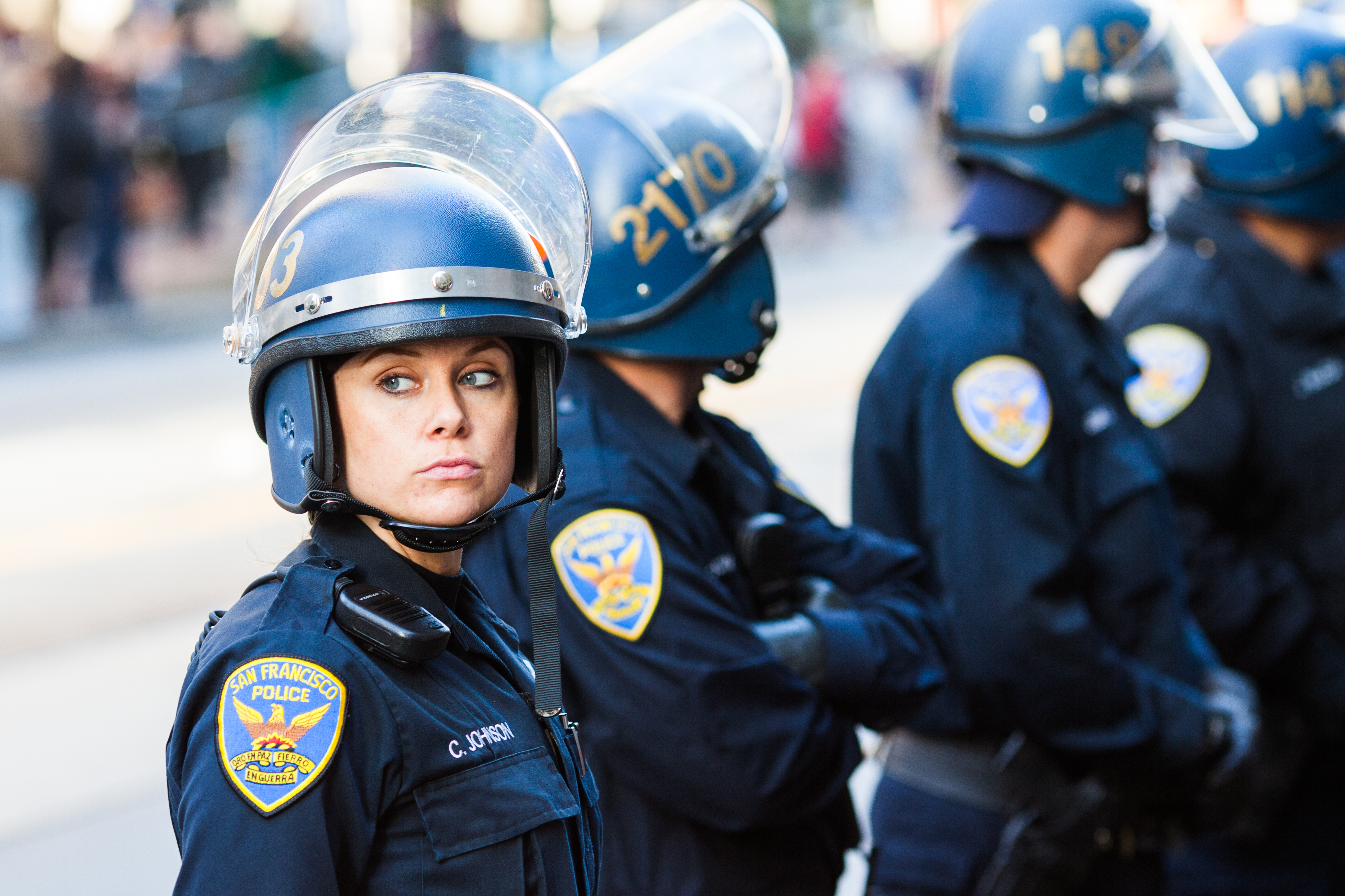A new police beat with officers responding to homelessness in San Francisco could be created if a question on the November ballot passes.
It’s the last thing that is needed, according to law enforcement professionals and experts.
Proposition R, the Neighborhood Crimes Unit ordinance, would mandate the San Francisco Police Department into dedicating at least 60 officers citywide to these units.
Officers assigned to the units would handle crimes such as property theft, robbery and burglary. But they would also be tasked with enforcing homelessness-related codes, including sitting and lying on sidewalks, and panhandling.
The measure, written by Supervisor Scott Wiener, would kick in when the police department staffing level meets a City Charter-mandated threshold of 1,971 full-time officers. The department expects to reach it next year.
It already has the support from the Police Officers Association. Martin Halloran, the union’s president, told the San Francisco Chronicle that the measure “mandates the department to reach full strength per the Charter.”
However, other authorities question the wisdom of instituting police policy at the voting polls. Tony Ribera, a former Chief who is now director of the International Institute of Law Enforcement Leadership, opposes Prop R. Creating a special unit would interfere with the relationship between the department’s 10 station captains and the neighborhoods they serve, he said.
“I think it’s important to be accountable to the community,” he said. “If you delegate that responsibility, you’re compromising that relationship.”
The measure would take away leaders’ discretion in assigning officers, Ribera added.
“With Prop R, we’re telling [police] how to deploy their troops. We’re telling them that we’re experts on it,” he said.
Police officers are loath to such edicts from outside the department calling for specialized units, said Elizabeth Brown, Chair of the Criminal Justice Studies Department at San Francisco State University.
“Police officers don’t want these assignments, and they don’t do them well,” she said.
Brown also added that the measure carries a mistaken assumption on community policing. “Wiener is overestimating the impact of foot patrols has on crime rates,” she said. She also pointed to studies of such units done in the 1970s, such as one in Kansas City, Missouri, where crime shifted to adjoining areas when officers started walking beats.
Also, the measure would lull middle-class voters into a false sense of security, Brown said.
“It’s not approaching crime, but approaching the fear of crime,” she said.
There was no input from the Police Commission or, for that matter, any public discussion on Wiener’s proposal until he submitted his measure to the Elections Department 13 minutes before the ballot deadline.
The Street Sheet, which the Coalition on Homelessness publishes, also noted earlier this year that the Mayor or the Chief of Police could just as easily establish the unit on their own. In a July 1 article, the paper criticized the Prop R’s emphasis on so-called “quality of life” violations, among other low-level offenses, and could set a bad precedent.
“This allocation, if it passes, will be unique,” the Street Sheet said, “which will mean this kind of crime, unlike any other — unlike murder, human trafficking, drug dealing, child pornography — will be a prioritized expenditure. Is this really the top priority for San Franciscans?”
It’s not like police officers haven’t already been paying attention to the ongoing crisis. Since 2004, the department has been operating a homeless outreach unit, ostensibly to connect street people with services. But that rarely ever happens, according to the Coalition’s “Punishing the Poorest” report from 2015; “services” usually take the form of a shelter referral, a pamphlet, or even a sandwich, and that offer is usually accompanied with the threat of arrest.
Lt. Michael Nevin, the department’s appointed outreach coordinator, admitted to researchers that the effectiveness of its approach is limited, mostly because it is based on complaints from merchants and housed residents.
“If Mrs. Smith continues to call 911 because some guy’s sleeping on her doorstep, we are duty-bound to respond,” he said.
Often, police officers are the only people available for homelessness-related calls, according to a recent report from the Budget and Legislative Analyst’s office. It recommended that other City agencies — such as the newly created Department of Homelessness and Supportive Housing — make first contact with unsheltered residents.
“Police officers are currently the only staff to respond to these incidents,” the Budget Analyst wrote, “even though police officers are not trained to evaluate the complex needs of a homeless individual or directly connect them with the social services provided by the City.”
The coupling of property crimes and status offenses in the ordinance’s language rankles opponents to the measure. While numbers in one group of offenses — property crimes — rise and decrease over time, calls for “quality of life” incidents have increased. FBI rates show as much as a 60 percent rate change in property crimes and robberies over the last five years. But the Budget Analyst report noted a 34.8 percent increase in police calls for homelessness-related incidents from 2013 to 2015.
These incidents are likely result in tickets to homeless people: In 2014, police handed out over 27,000 citations, most of which were for sleeping or sitting outdoors.


